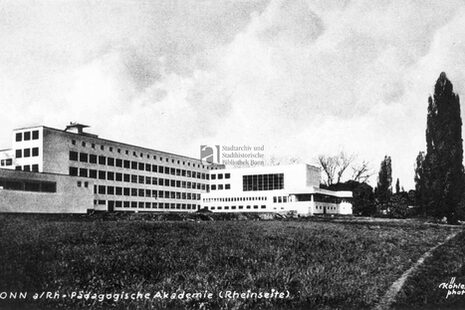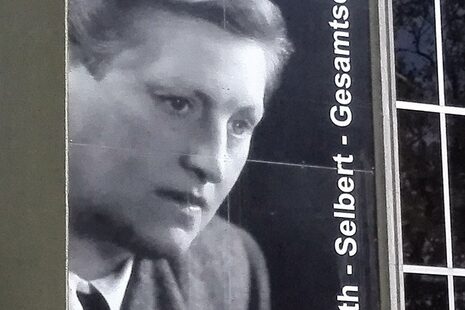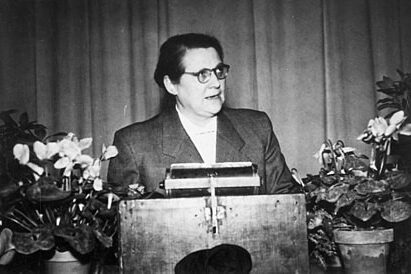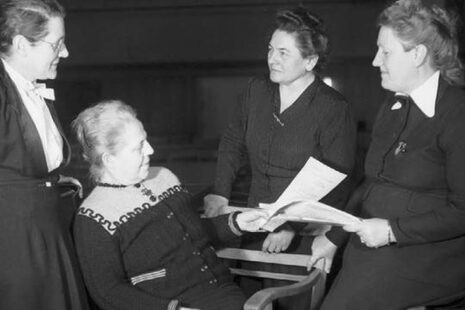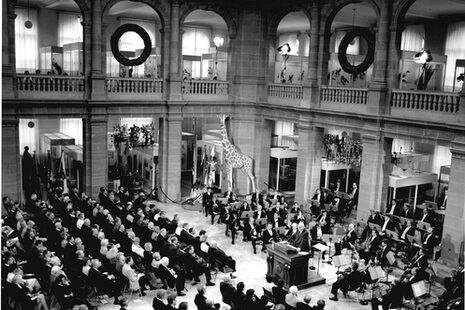Karl Arnold, Minister President of North Rhine-Westphalia in 1948, at the opening of the Parliamentary CouncilWe are starting this work with the intention and the firm will to erect a building that will ultimately be a good house for all Germans.
On August 13, 1948, a decision with far-reaching consequences for post-war Germany was made in a telephone vote: The heads of government of the then eleven states of the three West German occupation zones - including the mayors of Bremen and Hamburg - voted by a majority that the Parliamentary Council should meet in Bonn.
For nine months, from September 1, 1948 to May 8, 1949, the Parliamentary Council, as a constituent assembly, drafted the Basic Law for the Federal Republic of Germany.
August 1948: Constitutional Convention on Herrenchiemsee
But before the Parliamentary Council could begin its work, the so-called "Constitutional Convention" met from August 10 to 23, 1948 on the Chiemsee island of Herrenchiemsee in Bavaria. The committee of legal scholars, politicians and administrative experts has already submitted recommendations for a "Basic Law". The experts are now preparing the basis for the work of the Parliamentary Council. While the Constitutional Convention is meeting, a telephone vote is held to decide where the Parliamentary Council will meet: Of the eleven heads of government, eight vote for Bonn, two for Karlsruhe and one for Celle.
The 65 voting members of the Parliamentary Council - 61 men and four women (Helene Weber, Elisabeth Selbert, Friederike Nadig and Helene Wessel) - were elected by the individual state parliaments. In addition, there were five non-voting members elected by the Berlin City Assembly.
September 1948: Ceremony at the Museum Koenig
The opening ceremony takes place on September 1, 1948 at the Museum Koenig in Bonn, where animal specimens are usually exhibited. The invited guests gather in the museum's Lichthalle. It is one of the few representative buildings in Bonn to remain intact after the Second World War.
The Council is faced with the task of drawing up a provisional constitution for the part of Germany under Western Allied control. On the same day, the Parliamentary Council is constituted in the auditorium of the Pedagogical Academy and elects 72-year-old MP Konrad Adenauer (CDU) as its chairman.
Adenauer had lived in Rhöndorf, in the immediate vicinity of Bonn, since 1935. The SPD members of the Parliamentary Council are also accommodated there, in the Hotel Drachenfelser Hof.
Bonn in the race for the temporary capital
Bonn seems suitable for keeping the final decision on the future seat of government open. The city on the Rhine symbolizes the provisional nature of the founding of a "western state". In addition to the Pedagogical Academy as a conference venue, Bonn also has sufficient accommodation, a university library and health resorts in the immediate vicinity. Karl Sigmund Mayr (CSU) notes that "you can do your work here in peace".
May 1949: The Basic Law is passed
Exactly four years after the end of the Second World War, the Parliamentary Council adopted the Basic Law on May 8, 1949 at 11:55 p.m. after 36 amendments by 53 votes to 12.
A conscious effort was made to adopt the new constitution for the Federal Republic of Germany on May 8 - the fourth anniversary of liberation - in order to send a political signal of a new beginning.
